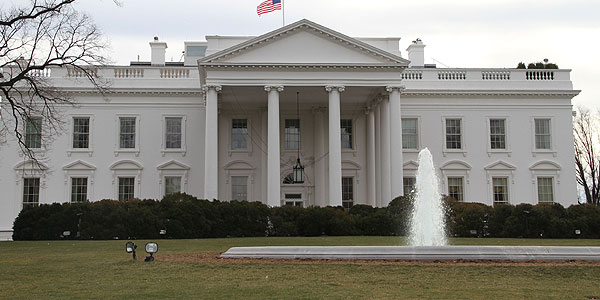ID :
216471
Wed, 11/23/2011 - 16:16
Auther :
Shortlink :
http://m.oananews.org//node/216471
The shortlink copeid
U.S. not expect Turkey will do everything that it does, White House official says

WASHINGTON (A.A) - White House's deputy security advisor has said that the United States did not expect that Turkey was going to do everything that the U.S. did regarding Iran.
Replying to a question at a press conference in Washington, Deputy National Security Advisor for Strategic Communications Ben Rhodes said, "we do want Turkey to be aware of the – what we believe are the risks of doing business with the Iranian Government."
Rhodes said the United States was in very close contact with the Turkish Government about several issues such as Arab League, Iran and Syria.
"The U.S. President (Barack Obama) and Prime Minister (Recep Tayyip) Erdogan have developed, I think, a very close partnership and friendship, really, and it has allowed them to have very frequent and candid discussions about these issues. We, frankly, see Turkey as playing a very important role in support for democratic aspirations in the region, as well as a security ally in the region," he said.
Rhodes said, "on Syria, I think we have – we were able to consult with Prime Minister Erdogan in advance of the President making the decision to call for Bashar Assad to leave power, and in advance of the very robust sanctions that we put on the Syrian regime. And we felt that was important, given Turkey's role as a neighbor and given Turkey's relationship with Syria, that we be very transparent about the steps that we're going to take."
"We believe that it's very important for Turkey to play a strong role in applying pressure on the Asad regime. To that end, what we see happening is a mounting tide of opinion in the region and in the world against Bashar Assad. And frankly, we see time running out for him, that there's no way that he’s going to be able to take the types of actions he has against his people and remain in power. And I think the Arab League showed real leadership in reducing its relations with Syria, and it's important for the Arab League to continue to follow through in that respect," he said.
"Similarly, Turkey has made very strong statements in recent days about the need for there to be change in Syria, and has indicated a willingness to move towards sanctions. And again, we believe that that's going to be critical, because the U.S. and our European allies have essentially thrown the book at the Assad regime. And that's had an impact. That's cut them off from sources of revenue. That's cut their petroleum sector off from sources of revenue. That's isolated their banking sector, and that, we believe, is being felt very much in Damascus. But insofar as regional partners like Turkey and the Arab League are increasing their own pressure, that can hasten the democratic transition that needs to take place within Syria. So as a general matter, we believe Turkey is playing a very constructive role, and continue to do so going forward," he said.
Rhodes said that with respect to Iran, Turkey obviously differed on the vote on 1929. "They have, however, not impeded but rather have abided by the multilateral sanctions framework that's been in place since then. Now, what we have also seen is additional steps have been taken by a range of nations that go above and beyond the basic framework established by 1929. The U.S., a number of European allies, Asian allies, have dramatically increased the sanctions that we've applied on the Iranian Government. We announced a whole new set of sanctions yesterday that address the petroleum industry, the banking sector, the petro-chemical industry," he said.
"It's not our expectation that every single country is going to take the same steps that we do. We'd, of course, like there to be as broad a front against the Iranian Government as possible, so we welcome any nation that wants to take it – that joins us in taking additional punitive actions. But similarly, we wouldn't have an expectation that Turkey's going to do everything that we do. We do want Turkey to be aware of the – what we believe are the risks of doing business with the Iranian Government. Given its proliferation activities, its support for terrorism, and the IRGC's (Iranian Revolutionary Guard Corps) increasing role in the Iranian economy. So we believe that Turkey needs to be vigilant in understanding that business that is done with Iran could potentially be corrupted by those practices by the Iranian Government. So that's the type of dialogue we're going to have with Turkey and with many other nations," he added.





